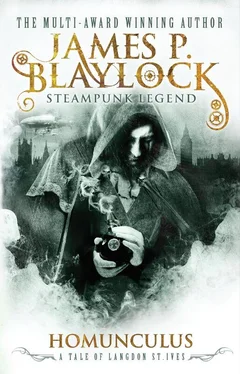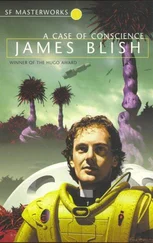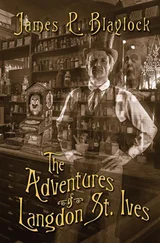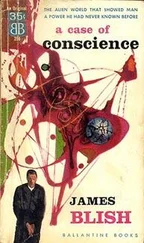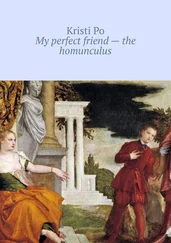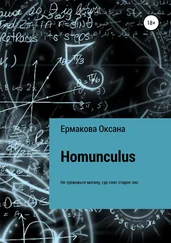James Blaylock - Homunculus
Здесь есть возможность читать онлайн «James Blaylock - Homunculus» весь текст электронной книги совершенно бесплатно (целиком полную версию без сокращений). В некоторых случаях можно слушать аудио, скачать через торрент в формате fb2 и присутствует краткое содержание. Жанр: sf_stimpank, на английском языке. Описание произведения, (предисловие) а так же отзывы посетителей доступны на портале библиотеки ЛибКат.
- Название:Homunculus
- Автор:
- Жанр:
- Год:неизвестен
- ISBN:нет данных
- Рейтинг книги:5 / 5. Голосов: 1
-
Избранное:Добавить в избранное
- Отзывы:
-
Ваша оценка:
- 100
- 1
- 2
- 3
- 4
- 5
Homunculus: краткое содержание, описание и аннотация
Предлагаем к чтению аннотацию, описание, краткое содержание или предисловие (зависит от того, что написал сам автор книги «Homunculus»). Если вы не нашли необходимую информацию о книге — напишите в комментариях, мы постараемся отыскать её.
Homunculus — читать онлайн бесплатно полную книгу (весь текст) целиком
Ниже представлен текст книги, разбитый по страницам. Система сохранения места последней прочитанной страницы, позволяет с удобством читать онлайн бесплатно книгу «Homunculus», без необходимости каждый раз заново искать на чём Вы остановились. Поставьте закладку, и сможете в любой момент перейти на страницу, на которой закончили чтение.
Интервал:
Закладка:
The Captain nodded. He could just see the hunchback’s shadow, still as a bush, cast across a bit of wall.
A new set of steps approached, accompanied by a merry bit of off-key whistling.
“Get your hat!” cried Captain Powers, standing up. He stepped across and turned down the lamp, plunging the room into darkness. There, striding purposefully up toward Keeble’s door carrying his packet of papers was Langdon St. Ives, explorer and inventor.
In an instant the hunchback — Dr. Ignacio Narbondo — had vanished. Theophilus Godall leaped for the door, waved hastily at Captain Powers, and made away into the night, east on Jermyn toward Haymarket. Across the street, William Keeble threw back the door and admitted St. Ives, who squinted wonderingly at the dark, receding figure that had hurried from the suddenly darkened tobacco shop. He shrugged at Keeble. The Captain’s doings were always a mystery. The two of them were swallowed up into the interior of Keeble’s house.
The street was silent and wet, and the smell of rain on pavement hung in the air of the tobacco shop, reminding the Captain briefly of spindrift and fog. But in an instant it was gone, and the thin and tenuous shadow of the sea vanished with it. Captain Powers stood just so, contemplating, a lazy shaving of smoke rising in the darkness above his head. Godall had left his pipe in his haste. He’d be back for it in the morning; there was little doubt of that.
A sudden light knock sounded at the door, and the Captain jumped. He’d expected it, but the night was full of dread and the slow unraveling of plots. He stepped across and pulled open the heavy door, and there in the dim lamplight on the street stood a woman in a hooded cloak. She hurried past him into the room. Captain Powers closed the door.
St. Ives followed William Keeble up three flights of stairs and into the cluttered toyshop. Logs burned in an iron box, vented out into the night through a terra cotta chimney, and the fire was such that the room, although large, was warm and close, almost hot. But it was cheerful, given the night, and the heat served to evaporate some of the rainwater that dripped in past the slates of the roof. A tremendous and alien staghorn fern hung very near the fire, below the leaded window of the gable that led out onto the roof, and a stream of water, nothing more than a dribble, ran in along the edge of the ill-sealed casement and dripped from the sill into the mossy, decayed box that held the fern. Every minute or so, as if the rainwater pooled up until high enough to run out, a little waterfall would burst from the bottom of the planter and fall with the hiss of steam into the firebox.
Darkened roof rafters angled sharply away overhead, stabilized by several great joists that spanned the twenty-foot width of the shop and provided avenues along which tramped any number of mice, hauling bits of debris and working among the timbers like elves. Hanging from the joists were no end of marvels: winged beasts, carved dinosaurs, papier-mache masks, odd paper kites and wooden rockets, the amazed and lopsided head of a rubber ape, an enormous glass orb filled with countless tiny carven people. The kites, painted with the visages of birds and deep-water fish, had hung among the rafters for years, and were half obscured by cobweb and dust amid the brown stains of dirty rainwater. Great shreds had been chewed away by mice and bugs to build homes among the hanging debris.
The red pine floor, however, was swept clean, and innumerable tools hung over two work benches, unordered but neat, brass and iron glinting dully in the light of a half-dozen wood and glass sconces. Coughing into his sleeve, Keeble cleared a score of mauve seashells and a kaleidoscope from the benchtop, then swept it clean with a horsehair brush, the handle of which was elegantly carved into the form of an elongated frog.
St. Ives admired it aloud.
“Like that do you?” asked Keeble.
“Quite,” admitted St. Ives, an admirer of William Morris’s philosophy concerning beauty and utility.
“Press its nose”
“Pardon me?”
“Its nose,” said Keeble. “Press it. Give it a shove with your fingertip.”
St. Ives dubiously obeyed, and the top of the frog’s head, from nose to mid-spine, slid back into its body, revealing a long, silver tube. Keeble pulled it out, unscrewed a cap at the end, found two glasses wedged in behind a heap of wooden planes, and from the tube poured an equal share of liquor into each. St. Ives was astonished.
“So what have you got?” asked Keeble, draining his glass and hiding it away once again.
“The oxygenator. Finished, I believe. I’m counting on you for the rest. It’s the last of the lot. The rest of the ship is ready. We’ll launch it in May if the weather clears up.” St. Ives unrolled his drawing onto the benchtop, and Keeble leaned over it, peering intently at the lines and figures through startlingly thick glasses.
“Helium, is it?”
“And chlorophyll. Powdered. There’s an intake here and a spray mechanism and filter there. The clockworks sit in the base — a seven-day works should do it, at least for the first flight.” St. Ives sipped at his glass and looked up at Keeble. “Birdlip’s engine: could it be duplicated on this scale?”
Keeble pulled off his glasses and wiped them on a handkerchief. He shrugged. “Perpetual motion is a tricky business, you know — rather like separating an egg from its shell without altering the shape of either, and then suspending the two there, one a quivering, translucent ovoid, the other a seeming solid, side by side. It’s not done in a day. And the whole thing is relative, isn’t it? True perpetual motion is a dream, although a sage named Gustatorius claimed to have produced it alchemically in 1410 in the Balkans, for the purpose of continually turning the back lens of a kaleidoscope. A wonderful idea, but alchemists tend to be frivolous, taken on the whole. Birdlip’s engine, though, is running down. I’m afraid his appearance this spring may be his last.”
St. Ives glanced up sharply. “Are you?”
“Yes indeed. When it passed five years ago it was low, fearfully so, and far to the north of its passing in ’65. So I’ve a suspicion that the engine is declining. The blimp may well drop into the sea, but I rather think it’s tending toward Hampstead where it was launched. There’s a homing element in the engine; that’s what I think. A chance product of its design, not anything I intended”
St. Ives rubbed his chin, unwilling to let Keeble’s revelation push him off his original course. “But can it be miniaturized? Birdlip has been up for fifteen years. In that time I can easily reach Mars, Saturn even, and return.”
“Yes, in a word. Look at this.” Keeble slid open a drawer and pulled out a wooden box. The joints were clearly visible, and the box was painted with symbols that appeared to be Egyptian hieroglyphs — walking birds and amphibians, eyeballs peering out of pyramids — but there was no sign of a hinge or a latch.
It immediately occurred to St. Ives that the box was a tamperproof bottle of some sort, perhaps a tiny, self-contained still, and that he would be asked to poke the nose of a painted beast in order to reveal an amber pool of Scotch whisky. But Keeble set the box squarely atop the bench, spun it round forty-five degrees or so, and the lid of the box opened on its own.
St. Ives watched as the lid rose and then fell back. From out of the depths of the box rose a strangely authentic-looking miniature cayman alligator, its long, toothed snout opening and shutting rhythmically. Four little birds followed, one at each corner, and the cayman snapped up and devoured the birds one by one, then grinned, rolled its eyes, made a sound like a rusty hinge, and sank into its den. After a ten-second pause, up it rose again, followed by miraculously restored birds, fated to be devoured over and over again into infinity. Keeble shut the lid, rotated the box a few degrees farther along, and smiled at St. Ives. “It’s taken me twelve years to perfect that, but it’s quite as workable now as is Birdlip’s engine. It’s for Jack’s birthday. He’ll be eighteen soon — fifteen years he’s been with us — and he’s the only one, I fear, who sees these things with the right sort of eye.”
Читать дальшеИнтервал:
Закладка:
Похожие книги на «Homunculus»
Представляем Вашему вниманию похожие книги на «Homunculus» списком для выбора. Мы отобрали схожую по названию и смыслу литературу в надежде предоставить читателям больше вариантов отыскать новые, интересные, ещё непрочитанные произведения.
Обсуждение, отзывы о книге «Homunculus» и просто собственные мнения читателей. Оставьте ваши комментарии, напишите, что Вы думаете о произведении, его смысле или главных героях. Укажите что конкретно понравилось, а что нет, и почему Вы так считаете.
